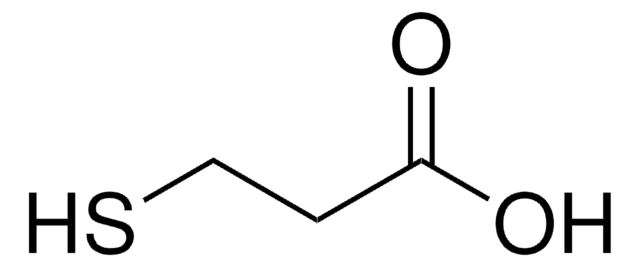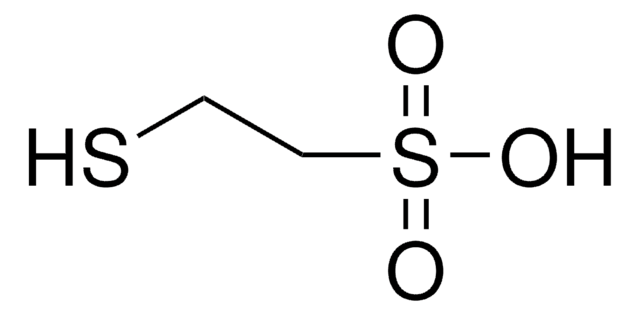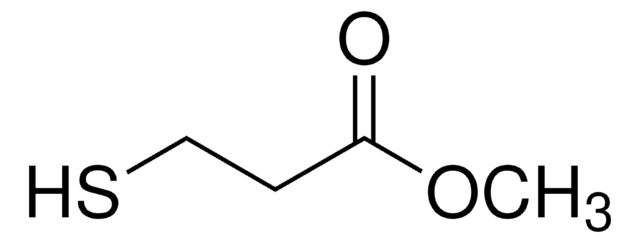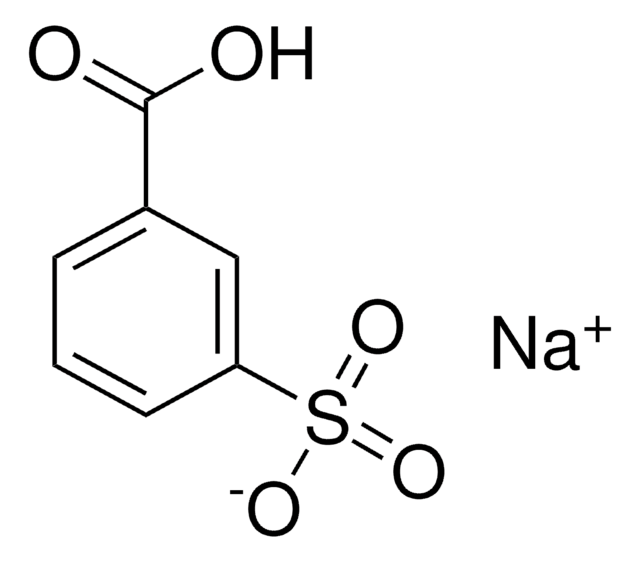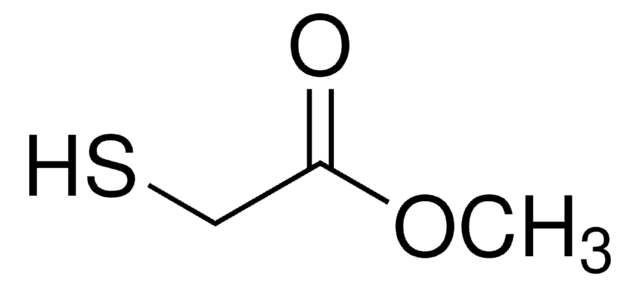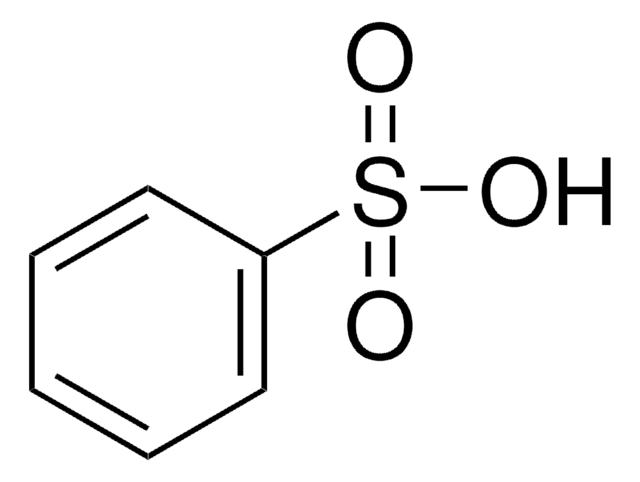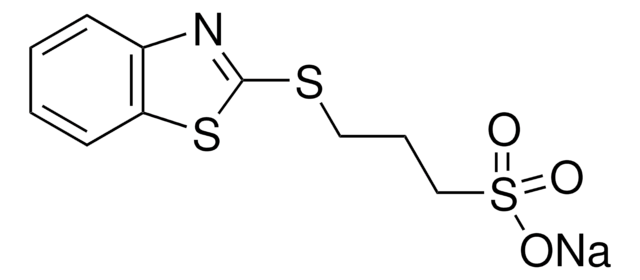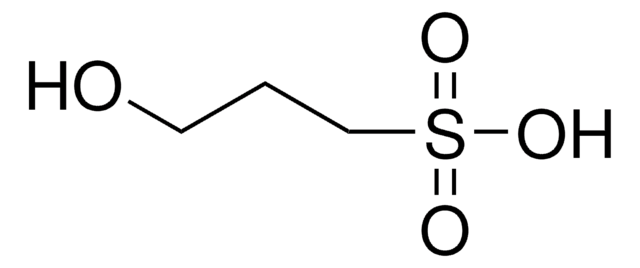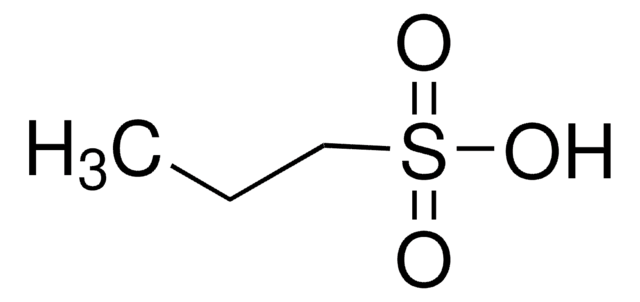251682
Sodium 3-mercapto-1-propanesulfonate
technical grade, 90%
Synonyme(s) :
3-Mercapto-1-propanesulfonic acid sodium salt, MPS
About This Item
Produits recommandés
Qualité
technical grade
Niveau de qualité
Pureté
90%
Forme
powder
Pf
~220 °C (dec.) (lit.)
Solubilité
water: soluble 50 mg/mL, colorless
Groupe fonctionnel
sulfonic acid
Chaîne SMILES
[Na+].[O-]S(=O)(=O)CCCS
InChI
1S/C3H8O3S2.Na/c4-8(5,6)3-1-2-7;/h7H,1-3H2,(H,4,5,6);/q;+1/p-1
Clé InChI
FRTIVUOKBXDGPD-UHFFFAOYSA-M
Vous recherchez des produits similaires ? Visite Guide de comparaison des produits
Description générale
Application
MPS can be also used in the preparation of Rh nanoparticles by liquid-phase reduction of rhodium (III) chloride.
Mention d'avertissement
Warning
Mentions de danger
Conseils de prudence
Classification des risques
Eye Irrit. 2 - Skin Irrit. 2 - STOT SE 3
Organes cibles
Respiratory system
Code de la classe de stockage
11 - Combustible Solids
Classe de danger pour l'eau (WGK)
WGK 1
Point d'éclair (°F)
159.8 °F - closed cup
Point d'éclair (°C)
71 °C - closed cup
Équipement de protection individuelle
dust mask type N95 (US), Eyeshields, Gloves
Faites votre choix parmi les versions les plus récentes :
Déjà en possession de ce produit ?
Retrouvez la documentation relative aux produits que vous avez récemment achetés dans la Bibliothèque de documents.
Les clients ont également consulté
Notre équipe de scientifiques dispose d'une expérience dans tous les secteurs de la recherche, notamment en sciences de la vie, science des matériaux, synthèse chimique, chromatographie, analyse et dans de nombreux autres domaines..
Contacter notre Service technique